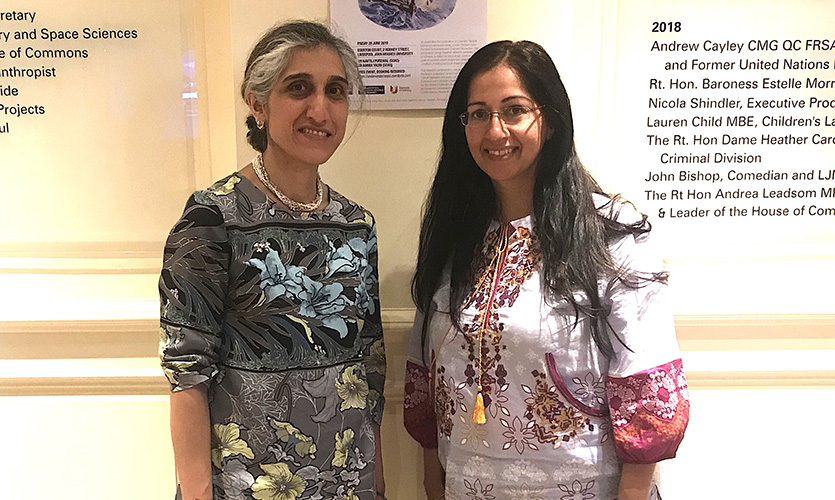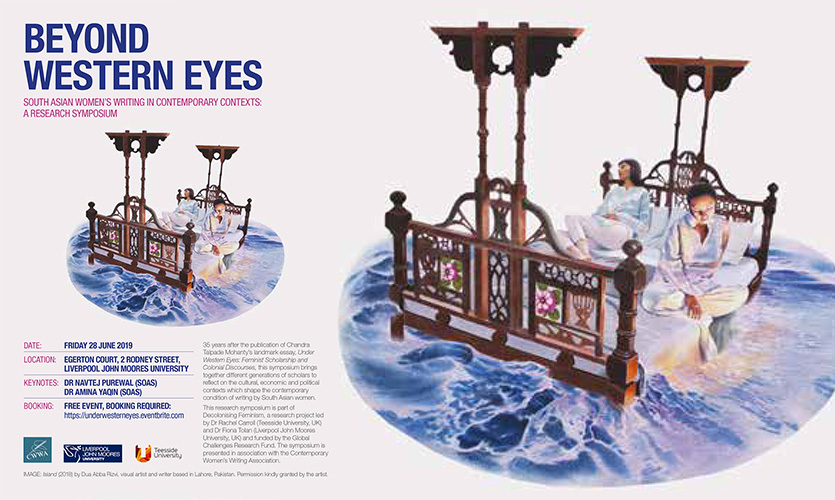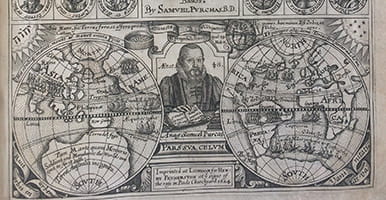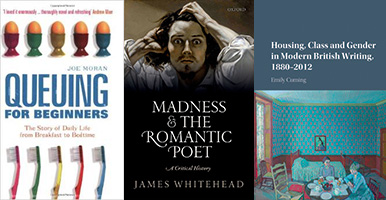Oscar Wilde and the First Bloody Sunday
In January Dr Deaglán Ó Donghaile, LJMU British Academy Mid-Career Research Fellow, gave a public lecture drawing on his research on Oscar Wilde during the week of commemorative events marking the anniversary of the Bloody Sunday Massacre of 31st January 1972, when British soldiers murdered 14 civilians in Derry during a peaceful demonstration against internment. During his talk, entitled “Oscar Wilde and the First Bloody Sunday”, Dr Ó Donghaile explained that Oscar Wilde’s literary and political writings, especially his 1895 play, The Importance of Being Earnest, and his 1891 essay, “The Soul of Man Under Socialism”, were deeply influenced by another “Bloody Sunday”, which occurred in London on November 13th, 1887. On this day, another peaceful march protesting against internment in Ireland was attacked by the British army and the Metropolitan Police in Trafalgar Square. Hundreds of demonstrators were severely injured, and two were killed.

In his lecture, Dr Ó Donghaile pointed to Oscar Wilde’s public opposition to internment, his support for the Irish Land League, and his repeated calls for Irish independence. He also described how Wilde’s friend, the poet and anarchist, John Evelyn Barlas, was one of those severely injured during the attack, and how Wilde’s radical socialism is key to both his play and essay.
This talk followed other successful events in Derry, where Dr Ó Donghaile has lectured on Wilde and held reading groups focusing on his literary writings during the Foyle Pride Festival. During these events, held in 2018 and 2019, he spoke on Wilde’s support for Irish independence.

In February Dr Ó Donghaile also discussed Oscar Wilde’s writings during an interview broadcast on Liverpool Community Radio.
His new monograph, Oscar Wilde and the Radical Politics of the Fin de Siècle, will be published by Edinburgh University Press in November.
He is currently writing a new critical biography of Wilde entitled Revolutionary Wilde, which will be completed in 2021. This research is being supported by a British Academy Mid-Career Research Fellowship.
‘Educational Pioneers: Fanny Calder, James Gill and the Making of a Modern University’ Exhibition
On the 12th February 2020 an exhibition was launched at Aldham Robarts Library, ‘Educational Pioneers: Fanny Calder, James Gill and the Making of a Modern University’. The exhibition was co-organised and curated by LJMU PhD researchers Lynne Wainwright and Wayne Turnbull of the Literature and Cultural History Institute. Lynne is a second year PhD student who focuses on the lives of students who attended the F.L. Calder Teacher Training College of Domestic Science, 1915 -1925. Wayne is a first year PhD student who is looking at the impact and history of the Liverpool Nautical College (est 1892).

The launch event included homemade cakes, baked from recipes that students of the F.L Calder College would have used. Calder’s MA robes were also on display as was student records from both the Domestic Science College and the Nautical College.
The exhibition showcases the work of two educational pioneers, Calder and Gill, who developed and provided expertise in growing areas of education during the late 19th and early 20th centuries. It also shows how that education was built upon by their students, creating an educational ripple effect. The exhibition is open until the end of March.
Other Cities/Other Lives
On 20 February at the Bluecoat, three leading contemporary poets read from their new collections exploring more-than-human perspectives on place and landscape. Cities, rivers, parklands and docks all came to life as these innovative poets re-imagined, for these complex times, what it is to be human. LJMU's Helen Tookey took part in a reading.
Find out more
The Uncollegial Precariat, or, the Character of Academic Fiction in the Age of the Neoliberal University
At an event held at LJMU on 18 February, Senior Lecturer in English, Ross Dawson interrogated the shifting literary representation of academic labour within the increasingly corporate institutions of Anglo-American Higher Education. Two post-millennial novels, Incredible Bodies by Ian McGuire (2007), and The Lecturer’s Tale by James Hynes (2001) were used to examine the way that teaching in Higher Education has been affected by the neo-liberalization of the university on both sides of the Atlantic.
Fin-de-Siècle: new directions
On 8 January 2020 the Research Institute hosted a New Year symposium entitled ‘New Directions in Fin-de-Siècle Studies’, attended by delegates from across the North West. Celebrating fifty years since the emergence of the field, the afternoon symposium was privileged to open with new work by Professor Margaret Stetz (Mae and Robert Carter Professor in Women’s Studies, University of Delaware and Institute Advisory Board member.) Discussing the collaboration of writer Ella Erskine and publisher Elkin Matthews Professor Stetz suggested that, rather than collapsing around the trials of Oscar Wilde in 1895, aestheticism was alive and well in the early twentieth century. Understandings of the fin de siècle were further re-evaluated by Institute member, Dr Deaglan O Donghaile, who discussed his new book on the little-known radical politics practised and promoted by Oscar Wilde. A lively paper from recent doctoral success in English at LJMU, Dr Joseph Thorne, examined Aubrey Beardsley’s illustrations of Malory’s Mort d’Arthur in terms of the collapse of social networks they appear to prophesise. Finally, Dr Matthew Bradley of the University of Liverpool gave a thought-provoking position paper on new directions that the field might take in which he argued that we can find the predecessors to the inter-generational conflict marking global politics today in this earlier period. More provocatively, Dr Bradly argued that, like our Victorian forebears, collectively we deal with the concept of imminent global collapse through humour. In the context of recent television adaptations of Bram Stoker’s Dracula and H.G. Wells’s The War of the Worlds, the symposium, organised by Dr Sonny Kandola (English), ably demonstrated that fin-de-siècle studies are more urgently relevant today than ever before to popular and academic audiences alike. The event offered new directions in which participating scholars and audience might take these interdisciplinary interests.

Image: "How Four Queens Found Launcelot Sleeping" by ghost archives is licensed under CC PDM 1.0
'Between Land and Sea': Launch of the Research Institute for Literature and Cultural History
watch video
The plenary lecture from the launch event, ‘Between Land and Sea’, held in September 2019 at Tate Liverpool, is available to enjoy. Professor Steve Mentz, St John’s University New York, presents a keynote on:
‘Acting Human in the Anthropocene: A Shakespearean Immersion’.
He is introduced by Professor Elspeth Graham, from the Research Institute for Literature and Cultural History. Concluding remarks are from Professor Joe Yates, Pro-Vice-Chancellor, Faculty of Arts, Professional and Social Studies.
You can explore the work of Steve Mentz further on his website.
On a beautiful blue-skied day in late September, LJMU launched its newest research institute: the Research Institute for Literature and Cultural History. Held at Tate Liverpool, in a space between the waters of the Albert Dock and the Mersey that seemed to float above them, the theme of the launch was ‘Between Land and Sea’. The event showcased the work of staff in English and Creative Writing through critical, historical, and creative presentations, readings, and films, based on their cutting-edge research and writing, which crossed and explored the borders and margins not only of the sea and land in literary and cultural history, but also the current edges and horizons of our academic disciplines and intellectual cultures — the littoral zone of literature.

Professor Steven Mentz, Plenary Speaker
The keynote speaker, Professor Steven Mentz, from St John’s University, New York, is a leading figure in the ‘blue humanities’, currently one of the most exciting and innovative areas of research in which literary scholars are taking part. His wide-ranging and compelling lecture moved from Shakespeare and colonial exploration to the climate crisis and swimming. Other plenary speakers included Professor David Amigoni, PVC Research at Keele University, and formerly one of the first PhD students in English at LJMU. He spoke of the energy and innovative atmosphere of the then Polytechnics, and the ways in which their commitment to innovation and inclusion was being sustained in the work of the Institute. Dr Alex Thomson, University of Edinburgh and Chair of University English, the national subject body, described the huge potential for socially valuable and interdisciplinary research in English embodied in an Institute which is known by its commitment to ‘new and unexpected fields of enquiry’. Guests at the launch included representatives of cultural partnerships across the city, senior staff from HE institutions across the north west, Honorary Fellows and staff from across LJMU, and members of the English postgraduate student body.
At the end of the plenary lecture, Professor Joe Yates (PVC, APSS) thanked everyone, further endorsing the vibrancy of the research culture in the Institute, and commenting on the synergy of the themes of cultural migration and mobility, clearly relevant to the city of Liverpool, with its rich history of maritime transit and exchange, and the wider region. The afternoon ended with a spirited performance by the LJMU sea shanty choir, ‘Anti-Shanties’, and a toast (no grog, sadly) to this exciting new development in the faculty and university.

Speakers: Dr Alex Thomson, University of Edinburgh, Professor David Amigoni, Keele University, Professor Glenda Norquay, head of the Institute, Professor Joe Yates, PVC LJMU.
Afterwards Professor Amigoni said:
It was a real honour to be invited to speak at the launch of the launch of the Research Institute for Literature and Cultural History at LJMU. It was a personally resonant occasion for me to reflect on the opportunity I was given to undertake my PhD in the nascent research environment from which the current, impressive Institute has grown. It enabled me to recall the excitement generated by the innovative intellectual and theoretical horizons offered by humanities in the 'polys' before they became the post-92 universities. It was wonderful to share in the research and community impact that is being produced in the Institute today. Congratulations to everyone on a superb and stimulating launch event.
Dr Alex Thomson, Chair of University English and Head of Department, University of Edinburgh, noted that research in English has been characterised by two massive success stories. The historical and archival turn has helped us articulate both the ‘cultural’ value and the ‘economic value of what we do: to reflect on our contribution to cultural industries and to the heritage sector -- and just as much to helping foster the living of meaningful lives in all kinds of places through the understanding of social and cultural histories, and individual lives.
The integration of creative writing into English has provided strong institutional support for living literature in an era when publishing is no longer offering anything like a living wage for most writers.
The stress on articulating the impact of what we do has strengthened our awareness of the relationship between the study of literature and the production of literature, between research and creativity, and between scholarship and the cultural industries. Understanding the connections between universities and the places in which they are found has renewed the idea of the civic, engaged, university as a platform for interaction between writers, readers and researchers.
He went on to congratulate LJMU on this significant step: the Institute reflects the strength of their research across the board in English: study of literature, language, creative writing; characteristic of English studies that it is widely distributed across the sector and that excellence can be found at any scale.
Fern Crazy at Sefton Park Palm House

Local children have created a beautiful new fernery at Sefton Park Palm House as part of a Being Human festival event organised by the Research Institute for Literature and Cultural History.
‘Fern Crazy’, led by English literature lecturer Dr Jude Piesse in collaboration with the Palm House, succeeded in bringing 250 visitors to the Palm House on 14 November 2019, to discover the forgotten history of the Victorian fern craze. Over one hundred children from city schools and children’s groups, including Liverpool College, St Anne’s Catholic Primary School, Granby and Dingle Children’s Centre, Belvedere Preparatory School, and Millstead Primary School joined forces to plant the fernery by the Palm House’s famous Peter Pan statue. Some of the children involved had never been to the Palm House before and it is hoped that many will return over the years to see the 130 ferns they planted growing.
 The fernery was built by the Palm House’s horticultural expert Colin Hughes using sections of a 300-year-old horse chestnut tree that was recently felled at Clarke Gardens. Its design has been inspired by original Victorian stumperies that make use of gnarled roots and branches.
The fernery was built by the Palm House’s horticultural expert Colin Hughes using sections of a 300-year-old horse chestnut tree that was recently felled at Clarke Gardens. Its design has been inspired by original Victorian stumperies that make use of gnarled roots and branches.
‘Fern Crazy’ was part of the Being Human festival, the UK’s only national festival of the humanities.
Other family-friendly activities on the day included fern-themed crafts with local designer Nghia Ton and storytelling featuring a pop-up book based on original Victorian fern fairy tales, created by LJMU English student Holly Fenn. LJMU Special Collections and Archives displayed rare Victorian fern books for adults and children, supported by the British Association for Victorian Studies. A pop-up exhibition by Dr Piesse illuminated the fern craze’s history and culture, covering urban gardening practices, fern folklore, environmental issues and more.
Feedback from visitors about the day has been fantastic: some of the words used by children to describe their visit included ‘brilliant,’ ‘fun’, ‘great’, ‘friendly’, ‘interesting’, ‘amazing’, ‘excellent’, and ‘cool’!
A smaller version of the exhibition was on display from 18-22 November, increasing access to approximately 500 additional visitors.
This event was funded by the Being Human festival, the UK’s only national festival of the humanities, taking place 14–23 November. Led by the School of Advanced Study, University of London, in partnership with the Arts and Humanities Research Council and the British Academy. Supported by the British Association for Victorian Studies (BAVS). Thanks to Liverpool City Council for providing the wood used in the stumpery and to Nghia Ton.

Major Conan Doyle Symposium
On 15 November 2019, LJMU Lecturer Jonathan Cranfield spoke at a major symposium on the work of Arthur Conan Doyle. Hosted at the Institute of English Studies at Senate House in London, the event also featured talks from major figures including Christine Ferguson (Language, Science and Popular Fiction in the Victorian Fin-de-Siècle), Roger Luckhurst (The Invention of Telepathy) and Douglas Kerr (Conan Doyle: Writing, Profession, and Practice).
Jonathan’s talk (‘Conan Doyle and London Print Culture’) examined Conan Doyle’s relationship to London through the lens of the periodicals and publishers which printed his early work.
The event was organised to celebrate the launch of Edinburgh University Press’ editions of the work of Arthur Conan Doyle which will appear from 2020. The series will feature an edition of The Memoirs of Sherlock Holmes prepared by Jonathan.
Lowry Lounge Programme
Events were held on 2 November, 2019 at the Bluecoat, Williamson Art Gallery and New Brighton Promenade.
Highlights of the programme included Helen Tookey's talk on the significance of symbolic images and landmarks of Wirral that connect to Malcolm Lowry's writing and later life.
Find out more about the programme.
Thinking Out Loud: Shyness, Writing and the Everyday
Led by Professor Joe Moran and artist Jess Scott - 23 October, Bloom, Birkenhead
Professor Joe Moran has focused on the everyday – the history of mundane phenomena such as queuing, motorways or watching television that we mostly fail to notice or take for granted. More recently he has written on shyness, a chronic and common condition. His latest book, First You Write a Sentence, is a ‘style guide by stealth’, a celebration of how good writing can help us to notice the world and live more meaningful lives. This talk will bring together these interests as he explores the links between shyness, writing and observing the everyday.
Find out more
RISE Festival
Poet Helen Tookey has collaborated with artist Sarah Hymas to create 30 limited edition poetry pamphlets in response to Shanghai Sacred exhibition at Victoria Gallery. The work focuses on Sudley Field in south Liverpool, a space sacred to Helen. The free booklets are hidden in special places around Liverpool…so keep a look-out.
Find out more
Latest publication: Travelling Servants
The latest publication from Research Institute staff is Travelling Servants by Kathryn Walchester. Published by Routledge, it offers an account of alternative modes of writing about and experiencing the Home Tour and the Grand Tour. Kate’s other publications on travel writing include Gamle Norge and Nineteenth-Century British Women Travellers in Norway (2014) and Keywords for Travel Writing Studies (2019) with Charles Forsdick and Zoe Kinsley. Kate teaches a level 6 module on travel writing for LJMU English.
Beyond Western Eyes: South Asian Women's Writing in Contemporary Contexts
On 28 June, LJMU hosted an international symposium, ‘Beyond Western Eyes: South Asian Women’s Writing in Contemporary Contexts’. The event was part of ‘Decolonising Feminism’, a research project led by Dr Fiona Tolan (English Studies, LJMU) and Dr Rachel Carroll (Teesside University) and funded by the Global Challenges Research Fund. The symposium brought together scholars working on South Asian and contemporary women’s writing in the UK, India and Pakistan.
Rich and challenging keynote papers were delivered by Dr Navtej Purewal (SOAS) on coloniality and the imperatives of contemporary feminist scholarship, and Dr Amina Yaqin (SOAS) on feminism and the secular sacred divide in contemporary Pakistan. A particular highlight of the day was a roundtable hosted by Dr Stuti Khanna from the Indian Institute of Technology, Delhi, and Dr Nukhbah Langah from Forman Christian College, Lahore: LJMU’s international partners on the Decolonising Feminism project. The roundtable included contributions via skype from postgraduate and early career participants joining the discussion from India and Pakistan, providing for an inspiring exchange of ideas across borders.
Society for the Promotion of Urban Discussion
On 28 June [the new Research Institute for Literature and Cultural History at] LJMU hosted the fifteenth meeting of SPUD: the Society for the Promotion of Urban Discussion. The society’s aim is to bring together scholars from a variety of disciplines (urban history, cultural history, architecture, planning, literature and other areas) to discuss the interaction between the social and the physical changes that occurred in British cities during the post-war period. Each meeting of SPUD takes place in a different city. At SPUD XV on 28 June, about 30 scholars participated and responded to papers given by Dr. Phil Child (University of Birmingham), Dr. Barnabas Calder (University of Liverpool) and Lynsey Hanley (LJMU).
Lynsey is a journalist and author of the books Estates: An Intimate History (2006) and Respectable: The Experience of Class (2016). A visiting research fellow at LJMU, she is also completing a PhD here on the role of public transport in the cultural imagination in the postwar era. Her paper for SPUD was titled ‘Imagining Good Transport’.
At the end of the event, the co-founders of SPUD, Dr. Otto Suamarez-Smith (University of Warwick) and Professor Simon Gunn (University of Leicester) thanked LJMU for hosting the event and making them so welcome.









 The fernery was built by the Palm House’s horticultural expert Colin Hughes using sections of a 300-year-old horse chestnut tree that was recently felled at Clarke Gardens. Its design has been inspired by original Victorian stumperies that make use of gnarled roots and branches.
The fernery was built by the Palm House’s horticultural expert Colin Hughes using sections of a 300-year-old horse chestnut tree that was recently felled at Clarke Gardens. Its design has been inspired by original Victorian stumperies that make use of gnarled roots and branches. 






